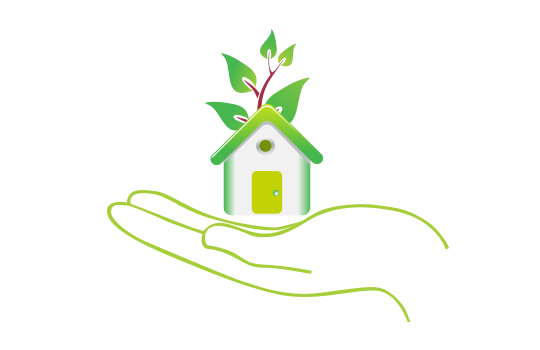Recycling in the Home

Reducing, reusing, recycling, and composting household and yard waste make for a satisfying personal or family project. These steps also conserve natural resources and protect environmental quality.
Reduce: There are many ways to prevent waste from entering the waste stream. Buying products that will require infrequent replacement is one way. This creates less trash.
- Buy concentrated products (fabric softeners, detergents)
- Create your own "snack packs"
- Use sponges and dish cloths instead of throwaway paper products
- Get off mailing lists
- Use rechargeable batteries
Reuse: Reusing items by repairing them, donating them to charity and community groups, or selling them also reduces waste. It is preferable to recycling because the item does not need to be reprocessed before it can be used again.
- Use durable coffee mugs
- Refill bottles
- Bring your own reusable shopping bags
- Use cloth napkins or towels
- Turn empty jars into containers for leftover food
Recycle: Recycling is separating materials from the waste stream and re-manufacturing them into new products.
- Glass
- Metal and aluminum
- Paper and cardboard
- Plastics
Composting is a useful organic material made from organic waste such as yard trimmings and food waste. The EPA states that these items constitute 24% of the U.S. municipal solid waste stream. All composting requires three basic ingredients:
- Browns-Includes materials such as dead leaves branches and twigs
- Greens-Includes materials such as grass clippings, vegetable waste, food scraps and coffee grinds
- Water
- More information can be found on these websites:
- Proper Sharps Disposal (PDF) ~ 3461 Kb
- We no longer collect plastic bags for recycling (PDF) ~ 514 Kb
- Don't Rush to Flush: Prescription Medication Disposal Program (PDF) ~ 1173 Kb
- How to Manage Household Hazardous Waste (PDF) ~ 20 Kb
- Medication disposal pamphlet 2020 (PDF) ~ 1173 Kb
- Styrofoam Recycling Ends July 31, 2020 (PDF) ~ 160 Kb
- Recycling Yard Trimmings

